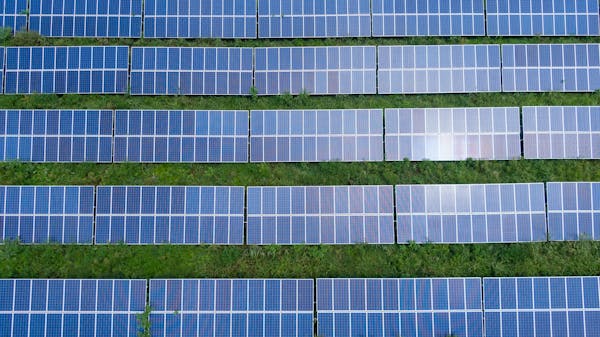Solar energy is becoming an increasingly popular choice for homeowners looking to reduce their carbon footprint and save money on energy bills. While it is true that solar panels can reduce a household’s reliance on fossil fuels, there are still concerns about the environmental impact of residential solar panels. In this article, we will explore the environmental impact of residential solar panels and whether they are truly as eco-friendly as they seem.
Manufacturing and Disposal of Solar Panels
The manufacturing process of solar panels requires the use of significant amounts of energy. The production of photovoltaic cells, which are the most common type of solar panels, involves the use of toxic chemicals such as cadmium and selenium. These chemicals can be harmful both the environment and the workers who handle them.
Furthermore, the transportation of the materials needed for solar panel production also contributes to the carbon footprint of the industry. However, it is important to note that the energy savings and carbon reduction achieved through the use of solar panels outweigh the environmental impact of their manufacturing process. Additionally, efforts are being made to develop cleaner and more sustainable methods for producing solar panels.
Energy Efficiency and Carbon Footprint
Solar panels are often touted as a way to reduce a household’s carbon footprint. While it is true that PV solar panels in Hove can help to reduce greenhouse gas emissions, their effectiveness depends on several factors. One of the most important factors is the energy efficiency of the household.
If a household is not energy efficient, then installing solar panels may not have as big of an impact on reducing their carbon footprint as they had hoped. This is because the household may still be using a lot of energy, even if it is being generated by solar panels. In order to truly reduce a household’s carbon footprint, it is important to first focus on energy efficiency measures, such as improving insulation, upgrading to energy-efficient appliances, and reducing overall energy consumption. Once these measures are in place, solar panels can be a great way to further reduce greenhouse gas emissions and save on energy costs.
Land Use and Biodiversity
The installation of solar panels requires space, and this can have an impact on land use and biodiversity. Solar panels are the often installed on rooftops, but they can also be installed on the ground. If solar panels are installed on the ground, then this can take up valuable land that could be used for agriculture or other purposes.
Furthermore, the installation of solar panels on the ground can have negative impacts on biodiversity. The loss of natural habitats and disruption to ecosystems can lead to a decline in biodiversity. However, there are ways to mitigate these impacts, such as selecting appropriate locations for solar panel installation and implementing measures to protect local wildlife. Overall, the benefits of solar energy in reducing carbon emissions and promoting sustainable energy sources must be weighed against potential impacts on land use and biodiversity.
Conclusion
While solar panels can help to reduce greenhouse gas emissions and lower energy bills, there are still concerns about their environmental impact. The manufacturing and disposal of solar panels can be energy-intensive and can contribute to electronic waste. Additionally, the effectiveness of solar panels in reducing a household’s carbon footprint depends on their energy efficiency. The installation of solar panels can also have an impact on land use and biodiversity.
